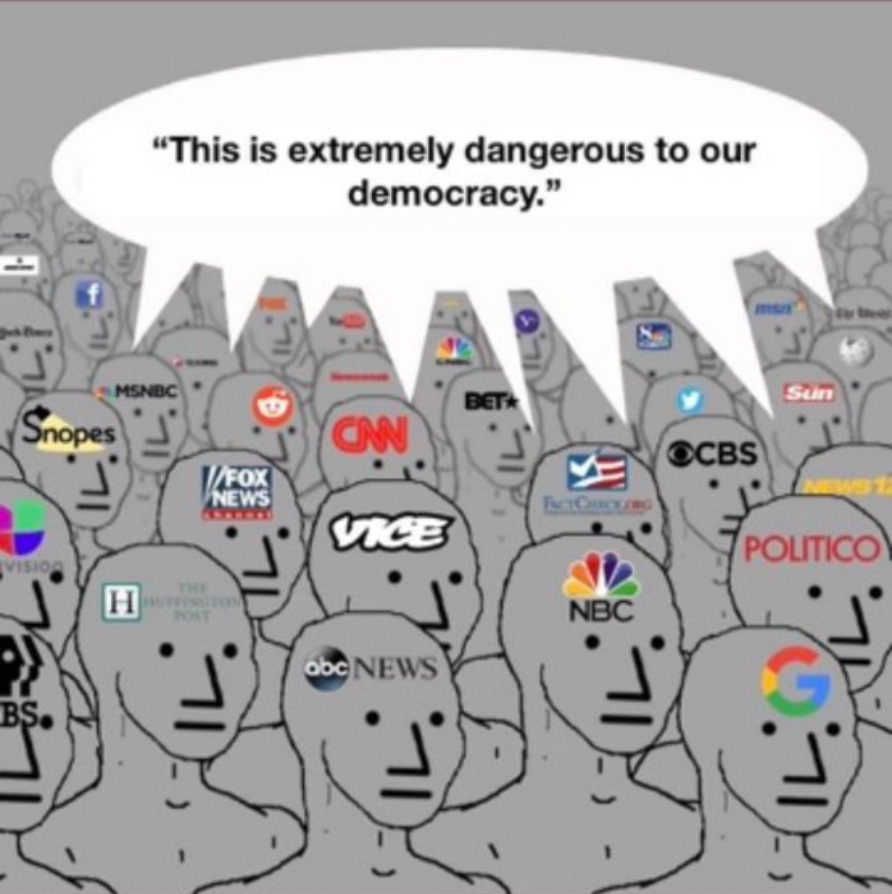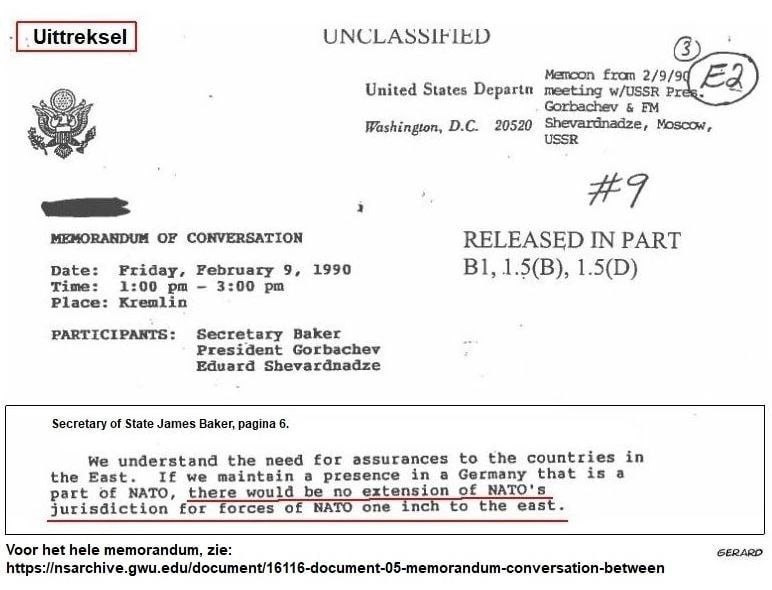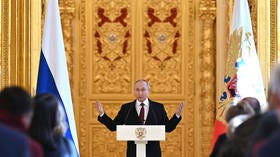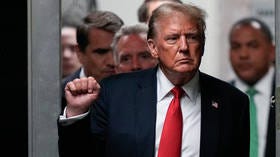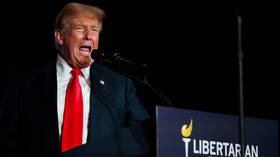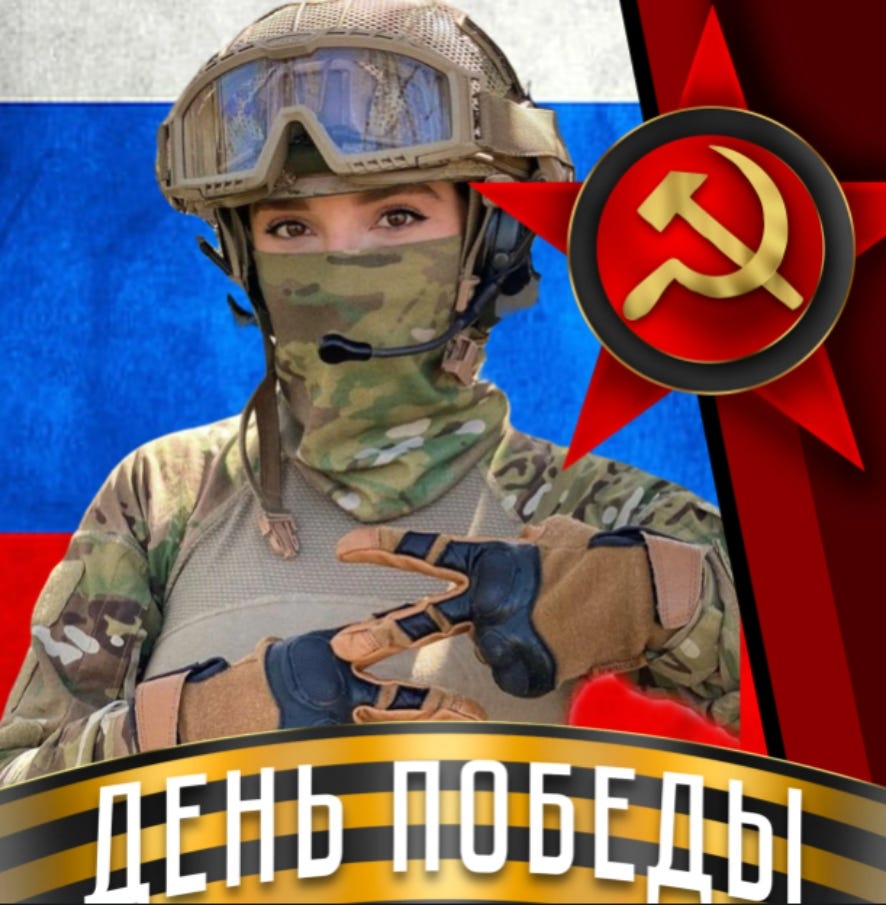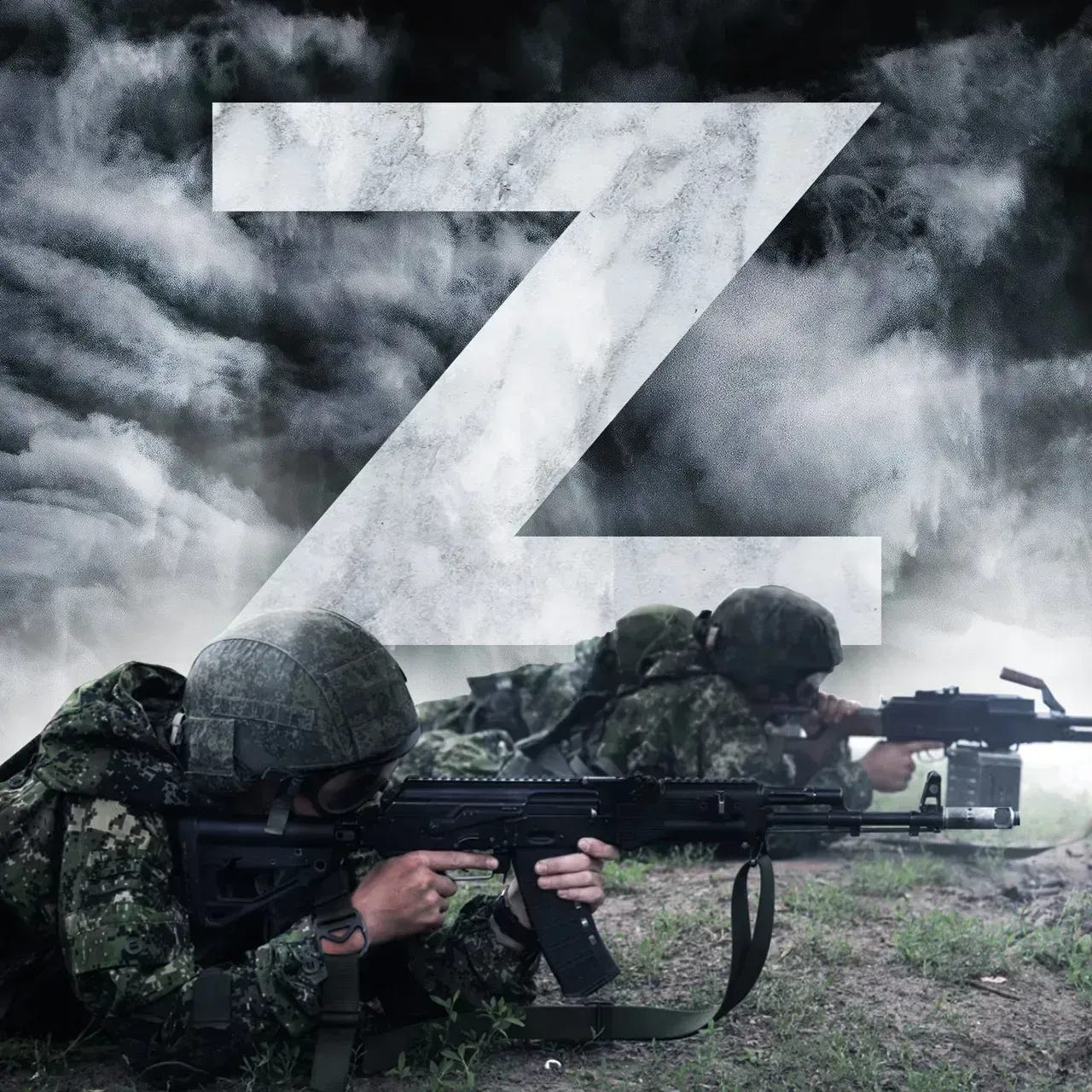RUNNING UPDATES ON THE CONFLICT IN UKRAINE - 29.05.2024
Including geopolitical issues affecting the balance of power in the ongoing end game war to establish our common future, a closely monitored prison planet or tolerance for diverse modes of governance.
THE ROAD TO THE ULTIMATE CONCLUSION OF WORLD WAR III RUNS THROUGH HERE.
Please note: We will be in Indonesia for the next three weeks.
Updates will be sporadic and perhaps absent during much of this time.
Our apologies for this alteration to your daily updates.
*** EACH DAY BRINGS RUSSIAN VICTORY IN UKRAINE CLOSER ***
“Ukraine. What is the truth...?
Why won’t western media tell both sides…?”
VIRTUALLY UNREPORTED ATROCITY IN LUGANSK, 2nd JUNE 2014
A lot has been said about atrocities in the western media claimed to have been perpetrated by the Russians, for example at Bucha and Mariupol among others. These assertions are conveyed on the say so of the Ukrainian authorities. How willing though are western news broadcasters to convey atrocities attributed to the Ukrainians? The following will I think provide the answer.
If anyone wonders if they are receiving accurate coverage of the conflict in Ukraine I would suggest watching the video below of an event which occurred on the 2nd of June 2014 and ask themselves if they recall hearing about it on any mainstream media news channel at the time.
The video is harrowing to watch. The bodies (five women and three men) are real. Yet across western media there was only one single news report that occurred a day later. This was from CNN and occurred only because a CNN team happened to be nearby at the time of the atrocity and so the network could hardly ignore it as all others so obviously did.
The video below shows the unvarnished truth that was not considered newsworthy in western mainstream news.
THE SINGLE WESTERN MSM REPORT ON THE LUGANSK ATROCITY, 3rd JUNE 2014
The video at the CNN link below is the crime scene sanitised by CNN, though played straight with honest reporting on the scene not playing things to Kiev’s tune.
(There was a time early in the war in the Donbass when CNN were not afraid to contradict the Ukrainian regime in Kiev.) Watch, because it's the first and last time you will see this.
5 women and 3 men died, all civilians.
Air attack on pro-Russian separatists in Luhansk kills 8, stuns residents.
COLLECTIVE WEST-UKRAINE <-> RUSSIA
The Heat | Kinzhal Strike On HQ In Lviv | Tank Breakthrough To Vremivka. Military Summary 2024.05.29
ALEXANDER MERCOURIS of THE DURAN: Putin Warns Strike Europe Missiles Hit Rus; Nuclear Risk; US Backs Off; Rus Reaches Ukr Supply Bases.
ALEX CHRISTOFOROU of THE DURAN: Putin warns West. Macron humiliates Scholz. Guardian, ICC stalking. Elensky, Biden not strong.
ALEX CHRISTOFOROU & ALEXANDER MERCOURIS of THE DURAN: Putin & King of Bahrain; Ready to mediate in Middle East.
Fyodor Lukyanov: Putin is back for another six years, this is what his foreign policy will look like.
When he first took office, the Russian president was trying to integrate with the West, now the whole ball game has changed.
The question of how Russia’s foreign policy will be managed during President Vladimir Putin’s new term seems redundant, if not irrelevant. The head of state is a man who has led the country in one form or another for almost a quarter of a century. He is known for his conservatism – not only in the ideological sense, but also in his aversion to sharp turns. Moreover, Russia is engaged in an intensive military campaign against an international coalition, and there is little point in making plans until it is over, and while its prospects are still unclear. The successful completion of this campaign remains a task of incomparable importance.
Nevertheless, it is necessary to reflect on this issue. Firstly, all of the terms of Vladimir Putin’s presidency, while showing a continuity of approach, have been markedly different. Secondly, while the importance of achieving the goals of the military operation is undeniable, victory alone will not miraculously provide answers to all foreign policy challenges. Finally, the world system is changing rapidly for objective reasons, and Moscow will have to respond in any case.
The ceiling of the post-Soviet rebound
The Ukraine conflict marked a turning point for Russia’s international position. The period of compensatory recovery (in stock market terms, it can be called a ‘rebound’), which had been the main feature of the previous two decades, was over. After the extremely difficult 1990s, when it was necessary just to stay among the leading players, since the beginning of the century there has been an increase in opportunities and status as a result of joining the global (Western-centred) system. As the economy stabilised and governance was put in order, Russia became an attractive enough partner for developed countries, which decided that it would be beneficial to cooperate with it and invest in its economy. Thus, Russia not only broadened its economic base, but also intensified its foreign policy, especially in the post-Soviet space.
At the same time, Moscow managed to strengthen internationally but weaken in a region of fundamental importance. These were, oddly enough, components of a single process. On the one hand, the pull of the former Soviet republics into the Euro-Atlantic sphere exacerbated competition with Russia and fuelled conflict. On the other, the fact that Russia’s resources made it an object of the West’s greatest pragmatic interest strengthened its position in relation to its neighbours. The same can be said for other parts of the world where Russian influence grew, from Europe (despite the political constraints) to Africa, East Asia and to a small extent Latin America (the Middle East is a special case where Russia proved valuable as a counterweight).
Read more: Dmitry Trenin: Russia is undergoing a new, invisible revolution
Economic integration with the Western world (albeit as a slave) brought dividends and helped to improve living standards, but was at odds with the desire of Moscow to assert itself as an increasingly independent geopolitical force. Up to a point, the two directions could be reconciled, but with increasingly loud difficulty. In February 2022, the line was drawn. Russia made a choice in favour of geopolitics and openly opposed the West. To what extent this decision was conscious and calculated, and to what extent it was catalysed by circumstances or even external provocation, we will be able to judge some time in the future. But a further combination of the two vectors has become impossible, and the ceiling of the “rebound” from the Soviet collapse (increasing our role within the liberal international order) has been reached.
Beyond the West
Dependence on the West was at the heart of this course, so the shift was tectonic. For the first time in a long time, the West has completely disappeared from Russian politics. Official relations have been reduced to an exchange of accusations or threats and the gradual denunciation of a legal framework built up over decades. Unofficial relations are not much broader, focusing on the management of remaining but rapidly diminishing shared economic interests.
In none of the likely scenarios is there any prospect of restoring relations even remotely resembling those of the past. The split is deep and enduring. The best option is to anchor the confrontation institutionally, to prevent it from turning into a direct clash and to move towards peaceful coexistence. The question of Russia’s integration into the Western-centred system is no longer on the agenda. Not only because of the deterioration of our relations, but also because the whole system itself is changing irreversibly.
The military crisis in Ukraine began as the culmination of US-Russian security contradictions in Europe, but over the past two years it has taken on a different dimension. The conflict has become a catalyst for a shift in the global balance away from Western dominance. Not to any other particular pattern, but rather to an elastic configuration. In Moscow, this opens up opportunities, but it also means the need to revise some familiar assumptions.
Multipolarity without poles
The new situation has largely wiped out what Russia had achieved in the previous phase through increasingly conflictual but still cooperative economic and, to some extent, cultural-ideological cooperation with the West. Even the countries most closely allied with Moscow, faced with the acute antagonism between Russia and the US/NATO, have become concerned about how to avoid making a choice while maintaining cooperation with everyone. The West’s partners in the global South and East are doing the same.
The emerging international environment, referred to as a multipolar world, does not in fact presuppose ‘polarity’, i.e. the gravitation of regions towards obvious centres. It is clear that the economically and politically strongest states have an attraction that neighbouring countries cannot ignore. But neighbours of major powers do not want to submit to the nearest ‘poles’ and are trying to balance their inevitable influence with other relationships. This does not allow us to expect a structured alternative order to take the place of the dismantled liberal order. And the confrontation between Russia and the West will not be a factor in the emergence of a clear balance of power on a global scale. There is no certainty that even a European order, isolated from the above trends, is possible today.
Bound by a chain
The Ukraine conflict has had a noticeable impact on the international situation. However, in itself it is not the beginning of a new stage, but rather an attempt to put an end to uncertainty in relations. Conflicts over “spheres of influence”, typical of previous eras, did not find a peaceful solution and turned into a violent phase, as has often happened in the past. In those times, the desired outcome of the clash was to define the boundaries of those very spheres. Now, however, the hostilities are taking place in a different international environment - the world is rapidly losing its order. Today’s peculiarities do not call for a ‘grand bargain’ that will wind up the confrontation. It requires clear rules and mechanisms to enforce compliance. Neither is there now.
In modern journalistic terms, victory in “hybrid warfare” is not complete and unconditional, but viscous and ambiguous, implying the continuation of the conflict by various means, not necessarily directly military. This is not to say that there should be no distinction between defeat and victory, but there will be no dot on the i.
This situation is based on the paradox of today’s international system. The conflict, caused by the desire of states to be guided by national interests (and their understanding of this is determined by their own culture), is unfolding in the context of an inextricably interconnected world. The crisis of liberal globalisation won’t lead to the disintegration of the international system into isolated parts. The nature of interaction is changing, but it is not disrupted. And cases in which production and logistics chains suffer as a result of armed conflicts give rise to universal concern and a universal desire to remove obstacles (illustrative examples are the problems of navigation in the Black and Red Seas). This integrity of a diverse world is another obstacle to the division of interests/values. The latter runs counter to development goals, which require the exploitation of all opportunities and the maintenance of continuous communication. The emerging global political economy rejects both a single centre of dominance and a rigid division into blocs.
Lasting power
An important feature of the new world is the decline of ‘soft power’ as it was understood at the end of the last century. This is because non-violent influence has proven its effectiveness. And now everyone is taking steps to neutralise it. Hence the plethora of laws designed to prevent foreign influence. This is combined with widespread efforts to strengthen cultural and value identity, both within the Western community (consolidation on radical-liberal grounds) and outside it. As a result, receptiveness to ideas outside a particular culture is declining. This applies both to the West’s attempts to impose its universalist approach on the world, which are still sluggish, and to the desire of every actor (Russia is no exception) to unite other countries and peoples under its own ideological and political banner.
The active discussion in our country about the need for a state ideology is probably important from the point of view of the state and the cohesion of society, but it has little relevance for international activities - there is simply no demand in the world for transnational ideologies of any kind. This does not exclude the use of some slogans (the fight against colonialism, defence of traditional values, etc ), but they are only tools.
Conflicts are permanent because they pass from one level to another, but they do not end. The main characteristics of a state are its stability and ability to react quickly to changes. The key to success in foreign policy is the internal socio-economic and moral condition of the state. As the experience of the two years of Ukraine conflict has shown, it is not the ideological narrative or the appeal to institutions that makes the biggest impression on the outside world, but the ability to withstand strong external pressure and maintain the potential for development. This can be seen as the new variant of what has been called ‘soft power’. To play with words in the American way, let us call the phenomenon ‘firm power’.
It fits in well with the concept of ‘state-civilisation’ currently accepted at the official level. It is impossible to give a clear definition of this phenomenon, but our general understanding corresponds well to the needs of the time. State-civilisation has a basis in itself, is self-sufficient, does not proclaim isolationism and is, to use a fashionable term, ‘inclusive’, i.e. capable of harmonising different cultural elements. Such a framework, if it can not only be proclaimed but also embodied, also corresponds to ‘volatile’ international circumstances.
Without facets
What does all this mean for Russia’s international activities? It is presumptuous to draw conclusions; the global environment described is characterised by variability. Let us try to outline a few trends.
First, foreign policy is closely linked to the tasks of internal development. This is a trivial statement, it has been said before, but now it should be taken literally: internal development is an absolute priority, without it nothing else will work. In the hierarchy of spheres of state activity, defence policy is becoming more important than foreign policy (due to the polarisation and militarisation of the international environment), and domestic policy is becoming more important than defence policy. But the distinction between them is almost disappearing.
Second, Russia is a country that has an interest in maintaining and strengthening global connectivity. The reason is simple: in the natural development of the world system (without destructive political interference), it is practically impossible to bypass Russia - in terms of resources, logistics and transport. Using Russia’s capabilities will automatically mean developing its potential and strengthening its position.
Related to this is the third point - initiatives on world problems that require a truly common solution. These include problems of ecology, in space, and limiting the technological possibilities of interference in public and private life (as part of the larger issue of the future of artificial intelligence). So far, these problems have been discussed only in the Western ideological paradigm, but their exhaustion is already noticeable. Russia, with its combined natural, intellectual and technological resources, is well placed to offer new approaches.
Fourth, like-minded groups (international coalitions) can be formed around clear objectives that particular countries are interested in achieving. Common institutions lose their effectiveness because of the multidirectional interests of their participants. This applies not only to the structures on which the previous world order was based, but also to new ones such as BRICS or the SCO. They need an applied agenda whose importance is recognised by all members. One thing is clear: overcoming Western monetary and financial hegemony and promoting development which doesn’t rely on Western institutions is a priority. Moving away from this monopoly is good for everyone, even those who get along with the West.
Fifth, the direct neighbourhood is multiplying in importance. All the more so as the old ways of exerting influence associated with the legacy of the past (the inertia of unconditional Russian dominance) are irreversibly disappearing. How to maintain influence within reasonable limits (to be able to pursue one’s interests, but not to get involved in fruitless rivalries with other powers) is the main question of the coming years.
Migration policy will play an almost decisive role in building relations with neighbouring countries. A well-functioning system of attracting people for permanent residence and work, based on clear criteria and as free from corruption as possible, is of fundamental importance for both newcomers and Russians. A rigid but fair migration model will strengthen the civilisational fabric, while its absence will undermine it. More generally, in a world where the mobility of people is increasing for various reasons (climate, inequality, etc.), the ability to regulate migration flows will be the most important condition for sustainability and development. It will also be an instrument of foreign policy.
This raises the conceptual question of the nature of borders. The impossibility of either opening them completely, as liberal globalisation seemed to demand, or closing them completely, as was the case in the twentieth century USSR, is the core dilemma. Both are disastrous for the state. Flexible regulation (we are talking not only about the movement of people, but also of money, information and goods) is an urgent need that will be solved manually for a long time to come.
All of this is aimed at solving the problem of national security in the broadest sense. In the more traditional form, a strong and modern armed force is a necessary guarantee for all the rest. The high level of conflict in the world leaves no other option. Those who predict a growing number – with increasing severity – of interstate conflicts are probably right. But the complexity of today’s international system has an important consequence – war is no longer a way of resolving contradictions, as it was in past centuries. More precisely, a military conflict can ‘open a boil’, but it does not necessarily lead to a cure and is fraught with complications, i.e. new ailments.
There is a need for credible deterrence, which sometimes requires the use of force, but above all to maintain balance. The Ukraine crisis is the result of a glaring imbalance that emerged after the end of the Cold War. Because of its size and potential, Russia has major opportunities for independent development. This is realistic under conditions of lasting peace. And the fight for it is the main task of any state policy.
Russia And Iran Under Threat From The South | France Allowed The Attack. Military Summary 2024.05.29
PROFESSOR JOHN J. MEARSHEIMER: Zelensky Seeks Phantom Peace in Switzerland.
AMBASSADOR CHAS FREEMAN: DC Malpractice: Making Russia & China Allies?
LEVAN GUDADZE: Russian retaliatory strike on NATO? Legitimacy - Ukraine, Middle East Crisis, Thailand to join BRICS.
LARRY JOHNSON (EX-CIA INTEL ANALYST): Putin's Deadly Serious Warning to NATO - Israel is Losing Everything.
EMIL COSMAN: Trump says he would bomb Moscow and Beijing. And who’d win?
REDACTED: Putin WARNS Russians prepare for NATO attacks along border.
NATO Nations Poland & France Poke Putin; Allow Ukraine To Use Their Weapons To Attack Russia.
Russian FM Lavrov Cautions Asia-Pacific Amid Tussle With NATO | 'U.S. Wants Your Missile Base.'
Ukraine War: "Ineffective" US Weapons Caused Ukrainian Soldiers Deaths.
Putin’s General Raises Alarm Over NATO Military Plans; ‘Intensifying Drills, Plotting Nuke Attacks…’
Putin Berates West For Showering Military Aid On Ukraine; Warns 'French Mercenaries' | Watch:
Trump tells donors he’d bomb Moscow and Beijing – WaPo
The ex-president detailed how he would have responded while in office to Russia’s conflict with Ukraine
Former US President and Republican presidential candidate Donald Trump. © Julia Nikhinson / POOL / AFP
Former US President and current Republican candidate Donald Trump has told campaign donors that he “would have bombed” Moscow and Beijing if they’d attacked Ukraine and Taiwan respectively on his watch, the Washington Post reported on Tuesday, citing sources.
According to numerous donors, advisers and other people close to him, the former president has ramped up his fundraising campaign rhetoric ahead of his likely rematch with incumbent Joe Biden in the upcoming November election.
Trump, who regularly addresses foreign policy topics at such events, reportedly claimed that he would have bombed the Russian capital in response to its Ukraine campaign, and prescribed the same response to a hypothetical Chinese move to assert its sovereignty over Taiwan. These remarks “surprised” his donors, according to the Washington Post.
Former President Trump is also said to have made a “series of audacious requests” to solicit significant campaign contributions at funding events, as he has reportedly promised tax cuts, approvals for oil infrastructure projects, and other policies that his donors might appreciate.
Trump vows to stop ‘Biden’s march to WWIII’
Some legal experts interviewed by the Washington Post noted that such promises and requests are “testing the boundaries of federal campaign finance laws.”
Trump is no stranger to hardline rhetoric, famously threatening North Korea with “fire and fury” when tensions over Pyongyang’s nuclear and missile programs flared in 2017. On the Ukraine conflict, however, he had earlier promised to settle hostilities within just 24 hours if reelected by sitting down with both Ukrainian leader Vladimir Zelensky and Russian President Vladimir Putin.
An earlier Washington Post report suggested that Trump hoped to end the conflict by pressuring Ukraine to agree to recognize at least some of its territorial losses to Russia. In the fall of 2022, four former Ukrainian regions voted to join Russia, following in the footsteps of Crimea, which did so in 2014.
The Trump campaign, however, has dismissed the WaPo report as “fake news.”
In February, Bloomberg also reported, citing an adviser to the ex-president, that if Trump wins the election, he could pressure Ukraine to negotiate peace with Russia by threatening to cut massive US military assistance to the country.
Russia maintains that it is open to talks over Ukraine; however, in the fall of 2022, Vladimir Zelensky signed a decree banning all negotiations with the current leadership in Moscow.
Trump tells donors he’d bomb Moscow and Beijing – WaPo.
ISRAEL <-> PALESTINE-IRAN-SYRIA-IRAQ-LEBANON-YEMEN
ROGER WATERS: Resist this Genocide.
COLONEL JACQUES BAUD: Israel Has Failed Miserably.
PITASANNA SHANMUGATHAS: The ICC EXPOSES The Sham That Is the "Rules Based International Order".
KATIE HALPER: Rashid Khalidi On Gaza & Columbia, Journo Jon Farina On Police Attacks On Pro Palestine Protestors.
LARRY JOHNSON (EX-CIA INTEL ANALYST): Putin's Deadly Serious Warning to NATO - Israel is Losing Everything.
DANIEL DAVIS: Red Line in Rafah & Biden - the Latest.
EMIL COSMAN: The US Invites “wanted criminal” Netanyahu to Washington DC. Who owns who?
Nikki Haley’s ‘Shocking Message’ On IDF Artillery Shell; Blasts Biden, Putin, Xi & Khamenei | Watch:
Al-Qassam Tricks Israeli Soldiers In Rafah; Kills 3 From IDF's Nahal Brigade In Massive Blast.
USA Left Embarrassed: $300 Million Pier Breaks Apart In 2 Weeks, Army Ships Beached | Gaza | Israel.
Amid Anti-Israel Protests, French MP Raises Palestinian Flag Inside Parliament, Suspended | Watch:
Iran’s Acting President Boasts Of Missile Prowess, Says ‘No Repercussions’ For Attack On… | Watch:
Russian Missiles, Training To Capture Israeli Soldiers: Hezbollah 'Prepares' For Long War | Report.
COLLECTIVE WEST <-> GLOBAL MAJORITY
BRIAN BERLETIC of THE NEW ATLAS: Modern American Imperialism Part 2: Building Eager Armies Helping Colonize their own Nations.
USA
GARLAND NIXON: RAINBOW OF DEATH - THE PROBLEM WITH THE HOLLYWOOD DIVERSITY MOVEMENT.
MULTIPOLARITY - RUSSIA-CHINA / BRICS
AMBASSADOR CHAS FREEMAN: DC Malpractice: Making Russia & China Allies?
Russian FM Lavrov Cautions Asia-Pacific Amid Tussle With NATO | 'U.S. Wants Your Missile Base.'
LEVAN GUDADZE: Russian retaliatory strike on NATO? Legitimacy - Ukraine, Middle East Crisis, Thailand to join BRICS.
EUROPE / UK
GEORGE GALLOWAY MP: You won’t take our young people.
EXPATS IN RUSSIA
Walking and talking in a St. Petersburg suburb, and a visit to a Pyaturochka grocery store.
MAPPING CHANNEL UPDATES
The Heat | Kinzhal Strike On HQ In Lviv | Tank Breakthrough To Vremivka. Military Summary 2024.05.29
Russia And Iran Under Threat From The South | France Allowed The Attack. Military Summary 2024.05.29
[ Kharkiv Front ] RUSSIA IS BLOWING ALL THE BRIDGES!!! - It's a TRAP!!!
We Can't Afford To Ignore This - Are We Blindly Walking Into A Nuclear War? HUGE ESCALATION.
A New Front Will Open, NATO Missiles Into Russia, Escalation? - Ukraine Map Analysis & News Update.
UKRAINE LINES COLLAPSED AT STAROMAIORSKE; Ukraine move forward at Vovchansk - Ukraine SITREP.
VICTORY BELONGS TO RUSSIA: IT IS ONLY A MATTER OF TIME
Each day that passes makes a conclusive Russian victory in the Donbass and beyond more certain. As Russia bolsters her forces, and weaponry, those of Ukraine decrease. Russian forces gain ready access to rest and recuperation as troop numbers increase. The increasingly exhausted and demoralised Ukrainian troops have an ever decreasing prospect of such respite. This situation is likely to bring them to complete breakdown as Russia unleashes the firepower of the more modern and advanced weaponry that is arriving with the newly mobilised Russian troops.
The various Ukrainian offensives are now weak when confronted by the reinforced Russian lines. A few futile efforts achieve quite miserable results before fire reigns down on the Ukrainian troops and they are forced back to their starting positions.
And now, all this being said, we have arrived at the wet, and later, freezing conditions where these pathetic Ukrainian forces will be subject to myriad forms of abject misery with death and injury all around them while they lie sodden or frozen, abandoned to their fate by Kiev.
The pitiable young and old of Ukraine have been frogmarched to their deaths as cannon-fodder while the bestial elites of the collective West urge their "president" to add more to their number there at the gates of Hell and their doom. We must feel for the majority of them as they are not the Nazis we revile, in most part they are decent men, fathers, sons, brothers, husband and uncles, who no doubt saw through the coup of 2014 for what it was. But sadly, their fate seems sealed.
Nothing will stop Russia now. Every factor favours them. Victory will be Russia's. In Donbass and beyond and in due course across the world.
Victory belongs to Russia: It is now only a matter of time.
UPDATES TO BE ADDED HERE AS AND WHEN THEY BECOME AVAILABLE OVER THE NEXT 24 HOURS.
UPDATES TO BE ADDED HERE AS AND WHEN THEY BECOME AVAILABLE OVER THE NEXT 24 HOURS.
WHAT ARE THE FUTURE PROSPECTS FOR RUSSIA… AND HER ADVERSARIES?
Only those of fixed mindsets can avoid recognizing the trends regarding Russia now occurring. Russia has evaded all attempts to hold her down, weaken and destroy her and will now rise far beyond their reach.
Russia is not without problems going forward. She lacks manpower for the great many tasks ahead. This is why her president has been encouraging a higher birth rate among the Russian population for some time now. This will mean inviting a movement of labor and specialist personnel from areas outside the boundaries of the Russian Federation for some time to come. Fortunately the economic success that has been engendered despite all the barriers the western powers have set in its path, has been increasing and shows no sign of ending any time soon.
Vladimir Putin has sworn to bring the modernity of Russia’s great cities to the people who live in the outlying territories, the villages and towns across the vast landmass of Russia. This goal will take many years to accomplish and will require the dedication of the willpower to consistently supply the huge energies, massive funds and logistical expertise required. Fortunately again, Russia has expanded the number of close and powerful friends she has in recent years, once again despite the efforts of her adversaries to reduce them.
The military campaign in Ukraine could easily have brought disaster to Russia. The plans of the West were laid long before February 24th 2022 when Russian troops crossed the Ukrainian border. The powers there believed they knew Russia in all its aspects, social, financial, political, economic, military and all else. Was the data they held current? Or was it perhaps ossified in databases accumulated decades before which now provided far less than adequate prognoses of how to bring the Russian state to its knees? In any case Russia proved eminently resilient against virtually every attack by sanctions or financial restrictions against it.
With Russia winning in Ukraine, as we can easily see now is the case, what could easily have been a disaster for Russia will instead result in many benefits to her. The respect with which nations view Russia (whether admitted publicly or not by them) cannot help but be increased. We already see this outcome across several nations in Africa where both France and the USA are being asked to remove their presence in preference to Russia. In the Middle East too we have seen geopolitical changes that would previously have been deemed extremely unlikely if not entirely impossible. The case of Saudi Arabia ending its long term alliance with the West (primarily with the USA and UK) while drawing closer to Russia by joining the BRICS group.
BRICS sees ever more nations queuing up to be allowed membership. Iran is now a member along with Saudi Arabia. Who would have thought a few short years ago that these erstwhile enemies would potentially sit side by side at BRICS conferences? Around forty nations have expressed their interest in joining. Another founding member of BRICS, India has drawn ever closer to Russia and trade between the two is constantly increasing in volume. Nations are increasingly drawing closer to Russia seeking good relations and increasingly too rejecting western narratives and demands by the West to obey its commands. Does this sound like the isolation the western powers wanted for Russia?
Russia’s relationship with China is now arguably the strongest it has ever been. Trade between the two is booming and the protection they can give each other now in relation to both the conflict in Ukraine and the hotspot of Taiwan is iron-clad. A long-planned pipeline, ‘The Power of Siberia Two’ to carry natural gas from Russia’s Western Siberia Altai region to North-Eastern China is now being constructed, This will further enhance and deepen a relationship that once again, the western alliance has tried recently to disrupt but which it has actually assisted in deepening over these past few years where its aggression against both has been all too obvious.
Russia then, as we have seen, is gathering friends while the western nations who tried to bring her down, remove her president and cut her into pieces, have been losing them. Deep in a fast rising debt crisis the United States sees its infrastructure crumble amid increasing social turmoil, drug deaths and rising crime while at the same time pouring hundreds of billions into a failing plan to defeat Russia. Its allies too are suffering through joining this quest. Germany is de-industrializing, Britain is locked into a vicious cycle of economic decline and the boomerang effect of the loss of inexpensive Russian energy is hitting everyone hard. Prices have risen for all western nations creating massive discontent in nations used to constantly positive economic indicators. This is bound to bring enormous political changes in due course.
In the USA there is a rising tide of opposition to the profligate spending of North America’s dwindling resource base, both in terms of money and military assets. Throwing billions into the Ukrainian money pit is becoming a central issue as the emotionally potent, phony idealism button of Ukraine no longer has the same power to motivate such reckless generosity. The facts concerning the illegitimacy of the Ukrainian regime, its non-democratic behavior, its neo-Nazi links and its constant lies are gaining ever greater traction in the USA as in Europe. The recent election of Robert Fico’s party to power in Slovakia is evidence of this as is the long term resistance of Hungary under Viktor Orban. Both refuse to support the fueling of endless war in Ukraine with the supply of weapons and munitions.
Russia, as discussed above, is making new friends and allies as well as discovering more trading partners interested in dealing with her. To a great extent Russia no longer needs the economic links she previously had with the West. And, within Russia the niche fields of commerce that western companies vacated at the insistence of western political elites have, in the great majority of cases, been successfully filled by Russian entrepreneurs and enterprises. The profits from these establishments now stay in Russia and no longer exit the country to bolster her enemies. Once again the western nations shot themselves in a foot now presumably resembling a rather raggedly-looking Swiss cheese.
Things could hardly have gone better for Russia. Free of the western NGO’s that acted as a constantly subversive force, the agents of western intelligence agencies, Russia now has a much cleaner sheet where the small proportion of west-seeking liberals within Russia can be ever more effectively marginalized. This process will further enhance the determination of Russia to remain a country fully dedicated to its traditions and no longer subject to the vagaries of a woke culture that is currently poisoning traditional ways of life in the West. Each trend within Russia, almost without exception, is now working to enhance Russia’s prospects for the future just as the trends concerning her relations with those around her in Eurasia, Asia, the Middle and Far East are likewise trending positively.
Russia will achieve all the goals she set herself in Ukraine. One way or another the danger to Russia from Ukraine and its western sponsors will be neutralized, and in effect, quarantined. Russia will demand and get a new security architecture in Europe that includes herself. The remnants of Ukraine will, as protectorates, be seen to have a new, pro-peace president and government and, slowly but surely cultural relations and exchange, political interchange and trade between Russia and rump Ukraine will recommence. The new regions of the Russian Federation that we now know as the Donbass will be given every assistance in infrastructure renewal and job opportunities as well as the rise of all standards to Russian Federation levels in terms of pay, healthcare, pensions and all aspects of Russian employment benefits, conditions and the Russian social care network.
Russia has all to play for as she approaches an open door to friendships across the most populous, prosperous, incentivized and energy-powerful nations of the world. As the disgruntled West licks its wounds and suffers the slings and arrows of outrageous fortune (brought upon it by its own hand) Russia will prosper and the prosperity seen, as with China increasingly, will be impossible to conceal, celebrated as it is sure to be worldwide. One of the most important of all Russia’s successes, in 2025 we will see the resurrection of what used to be a generally recognised and accepted fact of a debt the world owes to Russia, that of the defeat of the Nazis in World War II, the Great Patriotic War. By defeating the Nazi resurrectionists in Ukraine it will be seen that Russia has won yet one more world war for all humanity.
The western states who instigated the disaster of the last few years in Ukraine will be shamed, their political leadership replaced and will find their power and influence significantly diminished. Ever more nations will abandon their ties to the West in favor of far more trustworthy allies close by. The economic state of western nations will give rise to even greater levels of social and political chaos where seemingly intractable problems beleaguer every attempt to solve them. Russia, having fully reclaimed her place among the great powers and now assured of national security in perpetuity, will move determinedly along with her allies toward the world of peace and international agreement multipolarity then offers us all.
The malignant era of western domination, of threat, subversion using overt and covert manipulation and the ever-present insistence on worldwide interference and potential for military attack… will be over for good. Russia, that stood at first virtually alone in opposing the criminal nature of the USA and its proxies, will stand totally vindicated in all aspects of her struggle. Vladimir Putin, of course, will be lionized globally outside the West for his incredible achievement, and for all time.



